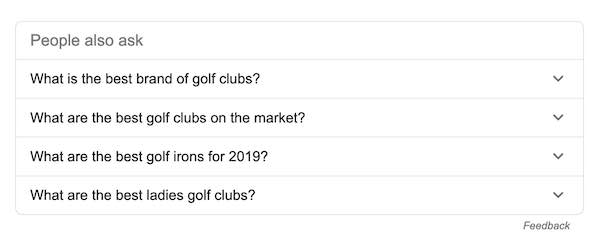Peanut Butter and jelly.
Cheese and wine.
Summer and vacations.
Some things are just meant to go together. Of course, there are plenty of other things that are perfectly paired too. Like:
SEO and content writing.
How?
SEO is the technical part of online marketing. It’s what helps drive quality traffic to your site.
Content writing is what keeps visitors there once they arrive.
If you drive people to your site and there’s nothing there, there’s no reason for them to stick around. And you can write and write and write for your site, but if you aren’t doing it in the correct way, no one will ever find your site. They’ll never know who you are.
Creating online content is the heart of the process. It’s what makes your entire online marketing strategy thrive. Without it, SEO would be meaningless. To do them both well, you have to consider one hand-in-hand with the other.
Where do you start?
Keywords
The starting point for any SEO strategy has always been keywords. It’s what guides you in knowing what the focus should be about the page you are creating.
But, of course, the concept of using keywords has changed a lot along the way.
If you look at the roots of search engine optimization, keywords drove the entire concept. Google ranked sites by looking at what each page online was about – both the coding and the content played an equal part in the determination.
Quickly, marketers figured that out. More keywords; better ranking. So the keyword stuffing strategy was born.
Have you ever looked at a page where a keyword is everywhere? It’s in the title, in every paragraph, in headers and footers, “invisible” by being the same color as the background. You read keyword, and the keyword is in keyword after every keyword in the keyword … yeah, you get it. And you know what I mean. That’s not the way to create a quality website that builds quality into your brand.
People grumbled. Google listened. And things started to change.
Of course, keywords haven’t gone away. The concept of keywords has changed since the Google Panda update. You can’t keyword stuff. You can’t fill a page with keywords for the sake of keywording it. But if you don’t have a focus for each page on your site, what’s the point?
I personally feel every page you create, every blog post you write, starts with a concept. You can get those concepts from your audience, your prospects and your customers. They will tell you what they want in the form of questions. Just listen to them. They’ll ask:
How do I …
What does it mean if …
What if this happens?
Where do I go to get …
Listening will give you more than enough content ideas to write about for years to come. But there are other ways too. How about Google’s own Keyword Planner? It’s built into the Adwords platform. It’s a great free tool that will tell you exactly what people are online and searching for.
Don’t have an Adwords account? Don’t want to mess with getting into another platform to figure it all out? You don’t have to go that far. Just use Google.
When you type something into the search bar, it provides you with millions of results.
If you type in “best golf clubs”, for example, you’ll get millions of results. It starts with pictures and links to places you can buy golf clubs. It provides you with ads and a few natural links. But Google also gives you another clue right in the rankings to what they want. It gives you this nifty little “People also ask” box.

Consistency
What matters to Google?
When you think about it from their perspective, it’s pretty easy to figure out. Google wants to make every searcher happy. And what everybody wants when they search is the most current, relevant information.
You want information from someone knowledgeable in the field.
You want information that answers your questions and allows you to go as in-depth as you prefer.
Google knows this. So they tweak their algorithm to ensure that they provide rank results to sites that are giving all that and more.
As a site owner, that clues you into the direction you should take. If you want to ensure your SEO strategy is on target, you better have a content writer that is creating online content for your site on a regular basis.
Because as Google peruses through your site, it’s looking for something new. It’s looking for new pages, new graphics, changes to the pages already there.
It asks the question: is this still a live site? Are people still here working on it? Is the company still in business?
And the way it tells is by looking for those changes. Changes mean there’s someone behind the screen, working away to build relationships with the people looking for them online.
You’re probably busy doing what you do. And that’s the way it should be.
And it’s easy to forget to work on your site. To add new content. To send it out to your social sites.
But if weeks turn into months, wave “bye-bye” to all you’ve worked on with your online marketing strategy. Without content writing, you’ll fade from ranking.
User Experience
SEO isn’t just about ranking in Google. It isn’t about the blogs you write, the pages you create, or the keywords you use.
It’s also about the experience the user gets once she gets to your site.
Have you ever traveled to a new city and gotten completely lost? You sit in traffic because you don’t know the backroads. You avoid sections of the city because you don’t know what to expect. It’s confusing, and you muddle your way through it, doing only what you’ve set out to do.
Compare that to your own neighborhood. You know the side roads that are never busy. You know the shortcuts to get you where you’re going. You know the best restaurants and the time of day to get the best service. You know the “secrets” of making your area the best it can be.
That’s called user experience.
You have an easier time with one over the other because of user experience.
If you revisited the brand new city with an app that directed you along the fastest route, what that improve your experience? Or what if you had a list of restaurants recommended by a friend?
Wouldn’t your user experience improve? What if you had a guidebook to help you every step of the way? Think you’d have a better time during your visit? You bet!
That’s your purpose for your site. That’s your goal with your content writing process. When you’re creating online content, you better be thinking about the user experience.
It can be as simple as paying attention to how you move around your site. If you click, where do you go? Are there any broken links? Or 404 errors? Do the graphics load easily? Does the navigation make sense?
A good sitemap helps in creating an easy approach for users to get to the content they are looking for. It also gives robots the appropriate path to crawl to view your content. This helps both for indexing and for delivering authentic search results.
What’s Your Strategy?
Are you using content writing to reach out and capture attention from your audience?
Or have you been ignoring it for months (or years)?
If you’ve always though creating online content is a chore, something you dread doing, then maybe it’s time you stop.
High-quality content is really the key to a great SEO strategy. It’s really the base ingredient. It’s the glue that binds it all together.
If you want that for your online marketing, maybe it’s time to do something about it. Set up a Discovery Call and let’s chat about it.
I’ve been providing content to businesses for over a decade. I still write for some of my first few clients.
Content works. Always has. Always will.
IF you do it the right way.
Ready to give it a try?

